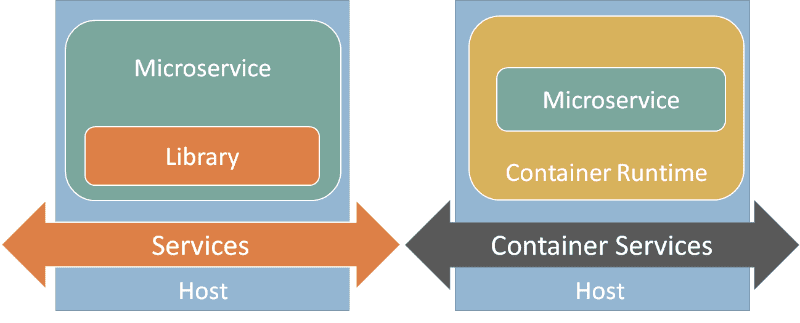Innovative Container Technology That’s Reimagining Enterprise DevOps


In the past, enterprise cloud adoption was primarily focused on software as a service (SaaS) and infrastructure as a service (IaaS) offerings, but lately there’s been an increasing call for enterprise adoption of Container Services, a technology that allows IT to package computing workloads onto a single server, increasing speed, scalability and the potential for competitive edge. Containers give businesses the ability to innovate and enhance services on the fly. With agile development capabilities, container technology is the perfect tool to support a DevOps approach. Vendors are now looking at ways that deliver the technology more efficiently: building on open container technologies in an effort to help enterprises IT teams deliver Container Services to their development teams.
Container Technology and PaaS
IT research and advisory firm Gartner, Inc. defines PaaS in their IT glossary:
“A [PaaS] offering, usually depicted in all cloud diagrams between the SaaS layer above it and the IaaS layer below, is a broad collection of application infrastructure (middleware) services (including application platform, integration, business process management, and database services). However, the hype surrounding the PaaS concept is focused mainly on application PaaS as the representative of the whole category.”
Enter Container Technology, where the tides begin to turn.
Nirmata, developers of an adaptive application management platform, set out to answer the question that everyone’s been asking: “What is a container service and why is it becoming popular?”.
Gartner reports that through 2018, more than 70 percent of IT organizations planning a private PaaS will deploy a container service (rather than PaaS framework software). Nirmata attributes this to several factors, most importantly that, early PaaS platforms have high lock-in and low flexibility. Jim Bugwadia, CEO of Nirmata penned an article for Infoworld earlier this year, Learning from the PaaS, explaining that, over the last couple years the PaaS landscape has changed significantly with the advent of containers.
“Container Services are gaining popularity driven by the widespread adoption of container technologies such as Docker. In fact, this adoption in container technology is also disrupting Cloud Management Platforms, accelerating consolidation (e.g. Cliqr/Cisco, ITapp/Service Now etc) in that space.”

Nirmata helps to eliminate challenges with PaaS, by offering an adaptive application management platform, build ground-up on open container technologies to help enterprises IT teams deliver Container Services to their development teams. Companies like Nirmata are focusing on application deployment and operations, in an effort to support multiple clouds.
“While it is possible to design microservices applications that have compile-time integrations with platform frameworks and services, using containers provide several benefits.” Jim Bugwadia explaned in a recent blog post.
“In addition to the agility and runtime portability, containers also make it possible to leveraging a standard layer of platform services that cleanly address several challenges in building, deploying, and operating for cloud-native applications.What’s even better, is that a number of these Container Services are themselves deployed and orchestrated as a set of system containers, allowing for additional ease of management and true multi-cloud application delivery and management.”
For more information on Nirmata, and container technology, visit www.Nirmata.com/
Latest PaaS News and Best Practices:
The 2016 Solutions Review Cloud Platforms Buyer’s Guide gives readers a free overview of the top 28 cloud service providers, including capabilities references and 10 questions to ask before implementing a cloud solution.
The Solutions Review PaaS Comparison Matrix report compares the top 12 PaaS vendors across features, languages, frameworks, middleware, and services.
Our Cloud Computing Glossary of Terms gives definitions for 50 of the most popular cloud computing terms and acronyms.
Widget not in any sidebars





















